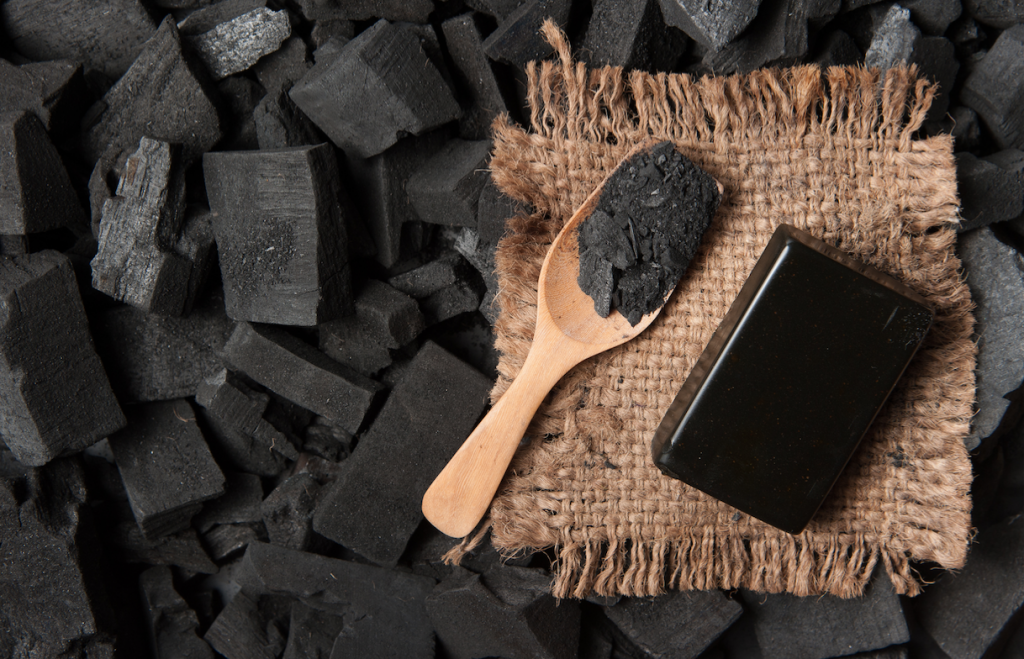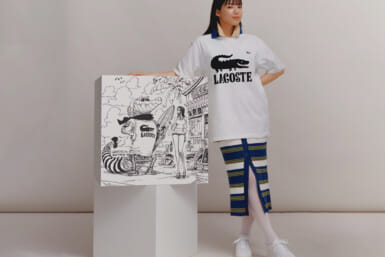Give your soap holder a hip new look with black bars of binchotan (also really good for your skin).
Now, we’re not suggesting you fish out some leftover coal from last night’s barbecue and slap it on your face as a skincare regime. Rather, we’re talking about binchotan, or activated charcoal, which has been used in Japan since the Edo period for both cooking and cleansing, and has recently begun attracting attention in the global beauty world for its excellent ability to trap and draw out impurities.
Most of the best quality binchotan, also known as white charcoal, is made from branches of ubame oak trees in Kishu, Wakayama Prefecture. Skilled artisans burn the wood in kilns at low temperatures for an extended period of time before upping the temperature to around 1,000 degrees Celsius so that it glows white hot. It’s then rapidly cooled and smothered with ash. The result is an extremely pure carbon that contains numerous tiny pores, which allows it to absorb chemicals and toxins, making it ideal for purifying air and water, whitening teeth, and detoxifying skin – it’s particularly helpful for those suffering from dry skin, acne, or redness.
So how do you incorporate this sooty ingredient into your cleansing routine? Luckily, there’s no need to make a DIY carbon face mask as plenty of beauty brands have begun launching charcoal-based face cleansers, masks, and soaps. To get you off to an easy start, we’ve rounded up three natural binchotan soap bars, perfect for those long, restorative winter baths.
Meow Meow Tweet’s Tea Tree Eucalyptus Bar Soap
It comes in hand-wrapped, whimsically illustrated packaging, and it’s made with charcoal for detoxifying, cocoa butter for a youthful complexion, ground oats to soothe and mildly exfoliate, and tea tree and eucalyptus oils to combat skin blemishes – what more could you ask of a bar of soap?
Available in Japan for ¥2,100 at www.go-online.jp
For more info call George & Oliver Company on 03-3505-7853
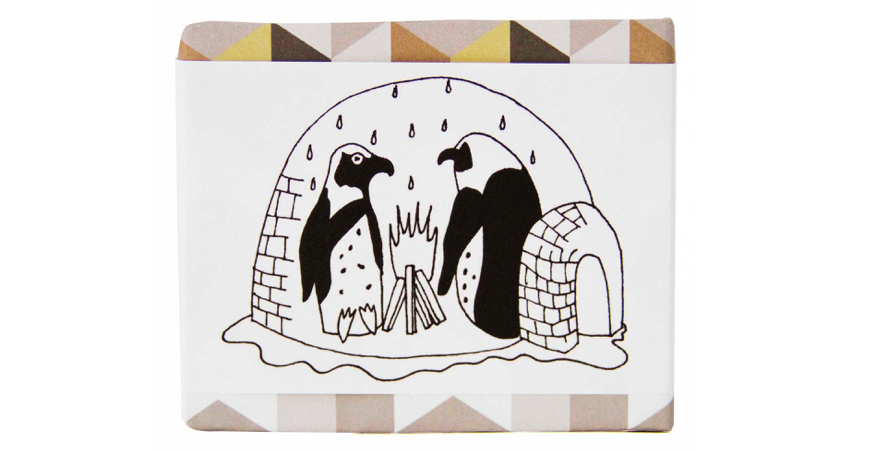
Pelican Hinoki Deitanseki Soap
Made by Pelican, this charcoal-based soap is a bestseller in Japan. When you unwrap it, the first thing you’ll notice is its pleasant hinoki (cypress pine) scent. Hinoki is known for its relaxing effects and for alleviating skin problems such as minor irritations, rashes and cuts. The soap also contains bentonite clay, which leaves skin smoother and brighter.
¥756 from Amazon.co.jp
For more info visit www.hinokideitanseki.com
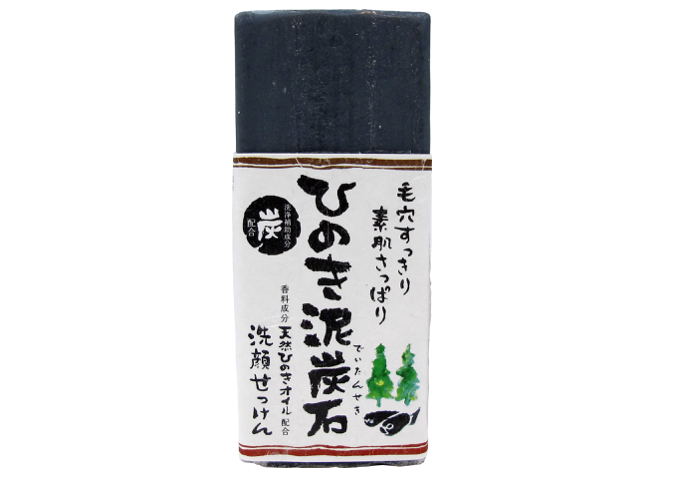
Rikumo Binchotan Facial Soap
Although based in the US, this brand has Japanese roots and sells a range of charcoal products made from Kishu-sourced binchotan. Their facial soap is moisturizing and detoxifying, has antibacterial properties, and helps to reduce acne and redness.
About ¥3,200 from rikumo.com
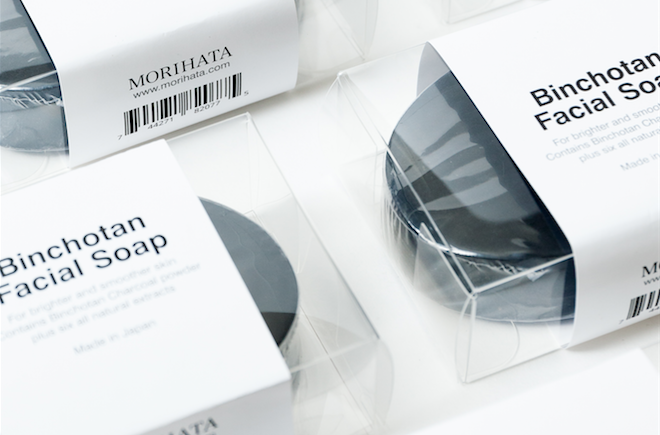
Not Into Charcoal? Here Are Three Other Natural Soaps to Try…
Khmer Rabbit
The Japan-born, Cambodia-based founder of this beautiful brand makes these natural soaps with honey – which he collects from hives himself! The soaps are organic and moisturizing, and if you can get your hands on a “whipping net,” you’ll be amazed at how much foam they produce.
Available from ¥3,780 at rabbitradiance.jp, and from Rooms Ji-Ba at Shibuya Hikarie between November 14 and December 25, 2016
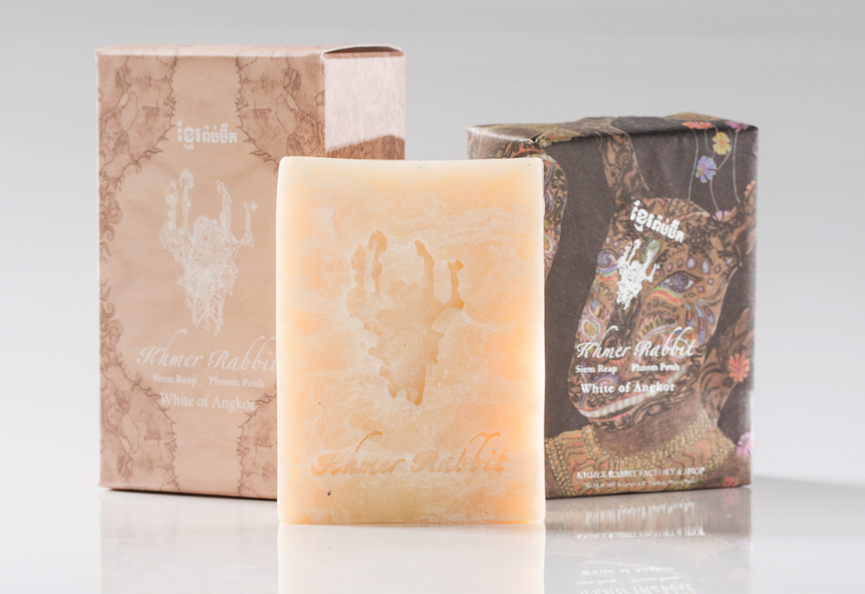
Soap & Paper Factory’s Star-made Collection
This New York brand makes all its soaps the old-fashioned way: by hand. Their Star-made Collection features three pure, vegan soaps in three varieties – Bouquet, Camellia, and Violet – all made with shea butter, olive oil, and coconut oil.
Available in Japan for ¥1,800 from www.go-online.jp
For more info call George & Oliver Company on 03-3505-7853
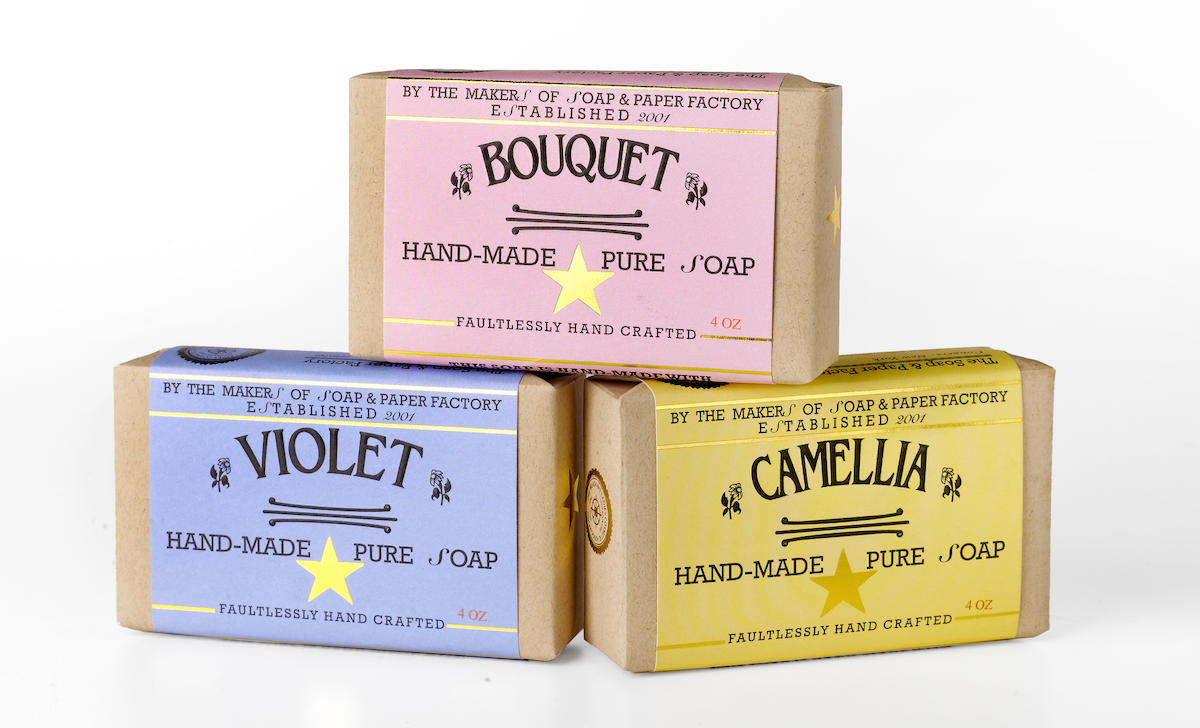
Ecostore
These creamy, gentle, mineral-based soaps by Ecostore come in a range of delicious “flavors,” our favorites being coconut, vanilla, and lemongrass. As the label says, they’re made with “no nasty chemicals.”
Available for ¥313 from ecostore.jp or at the Ecostore shop: 2F Atre Ebisunishi, 1-6 Ebisuminami, Shibuya-ku
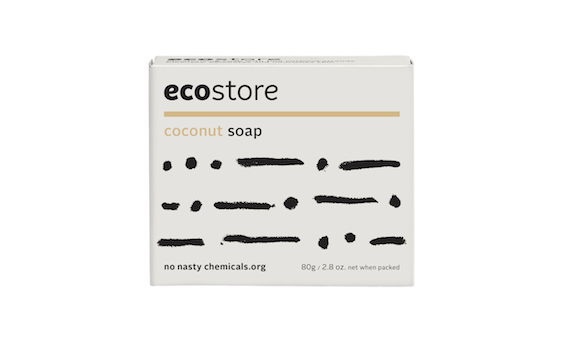
This article appears in the November 2016 issue of Tokyo Weekender magazine.

